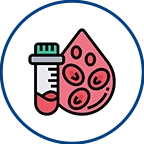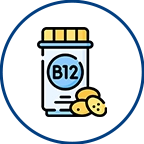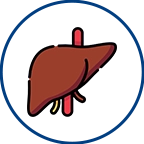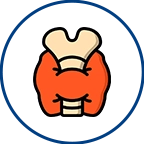Why is Protein Important in Your Diet
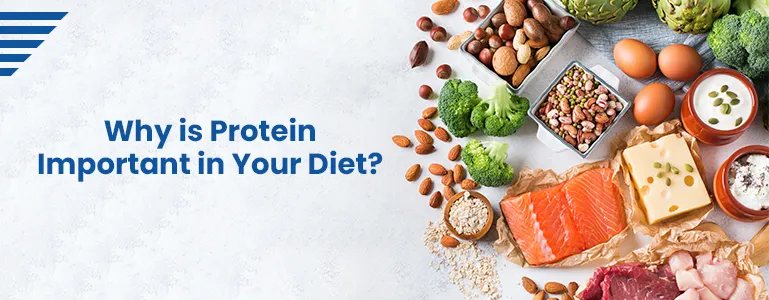
Protein is commonly referred to as the "building block of life". It plays an essential role in numerous bodily functions, from supporting muscle growth to maintaining a strong immune system. In this comprehensive guide, we'll delve into the importance of protein in your diet, uncovering the science behind its roles, exploring its sources, and providing practical insights on how to incorporate optimal protein intake into your daily routine.
Home Sample Collection
-
The Science Behind Protein Proteins are made up of amino acids, which are the basic building blocks of organisms and tissues. They play a crucial role in repairing and building tissues, producing enzymes and hormones, and supporting immune function. Amino acids can be classified as essential (those that must be obtained through diet) and non-essential (those the body can produce).
-
Muscle Growth and Repair Protein's connection to muscle growth is well-known. During activities that stress muscles, tiny tears occur, and protein helps repair and rebuild these tissues. Protein consumption should be prioritized by athletes and anyone who engages in regular physical exercise in order to support muscle recovery.
-
Weight Management Protein-rich foods have been linked to increased feelings of fullness and reduced appetite. Incorporating protein into your meals can help control cravings and contribute to weight management efforts.
-
Metabolism Boost Compared to carbs and fats, protein has a stronger thermic impact, which means that it requires more energy from the body to break down and digest. This can result in a modest metabolic boost.
-
Immune System Support Antibodies and immune cells are composed of proteins. Adequate protein intake is crucial for maintaining a robust immune system that can effectively fight off infections and illnesses.
-
Optimal Sources of Protein Animal sources like lean meats, poultry, fish, eggs, and dairy products are complete proteins, containing all essential amino acids. Plant sources like legumes, beans, nuts, and seeds are also rich in protein but may require a combination of sources to ensure a full range of amino acids.
-
Calculating Your Protein Needs Depending on characteristics including age, gender, degree of activity, and general health objectives, different people have different protein demands. Calculating your protein needs involves determining your daily activity level, lean body mass, and multiplying it by a factor that suits your goal.
-
Incorporating Protein into Your Diet Balancing protein intake throughout the day is important. Including protein-rich foods in each meal and snack can help maintain consistent energy levels and support muscle protein synthesis.
Protein Myths and Misconceptions
Misconceptions about protein abound, causing confusion. One myth suggests excess protein harms kidneys, but within reasonable limits, it's safe for kidney function. Another fallacy is that plant-based diets lack adequate protein. In reality, diverse plant sources can meet protein needs. Clearing these myths empowers informed dietary choices.
Conclusion
From muscle growth to immune support, its contributions are invaluable. By understanding the science behind protein, incorporating diverse protein sources into your diet, and calculating your individual needs, you can harness the power of this macronutrient to enhance your well-being. Remember, a balanced and protein-rich diet is a cornerstone of a healthy and thriving life.
Frequently Asked Questions
Does consuming too much protein damage kidneys?
No, moderate protein intake is generally safe for healthy kidneys.
Can high protein intake lead to kidney problems?
For most people with healthy kidneys, protein consumption within recommended limits is unlikely to cause harm.
Are plant-based diets lacking in protein?
Plant-based diets can provide adequate protein by combining various plant sources.
Can excessive protein consumption lead to weight gain?
Protein, when consumed in excess calories, can contribute to weight gain, like any macronutrient.
Do I need protein supplements for muscle gain?
Whole foods should be your primary protein source. Supplements are meant to complement, not replace, balanced diets.
Is animal protein superior to plant protein?
Both animal and plant proteins have unique benefits. A diverse diet incorporating both can meet protein needs.
Can protein consumption boost metabolism significantly?
Protein has a slightly higher thermic effect, but its impact on metabolism isn't drastic
Is protein intake beneficial for weight loss?
Protein-rich diets can aid weight loss by promoting satiety and preserving lean muscle mass
Can protein-rich diets be harmful to bone health?
Protein consumption is unlikely to harm bones if overall nutritional needs are met, including calcium and vitamin D.
Can children safely consume protein-rich diets?
Yes, but it's crucial to maintain a balanced diet that meets all nutritional needs.
Can high protein intake cause digestive issues?
Excessive protein intake might stress digestion. Balanced protein consumption is recommended.
Can protein consumption cause hair loss?
Protein deficiency, not consumption, is linked to hair loss. A balanced diet supports hair health.
Can I build muscle with plant-based proteins?
Yes, combining various plant proteins can provide essential amino acids needed for muscle growth.
Book Appointment
Our Locations Near You in Hyderabad
3KM from Banjara Hills
1.9KM from Yusufguda
3KM from Madhura Nagar
5KM from Shaikpet

